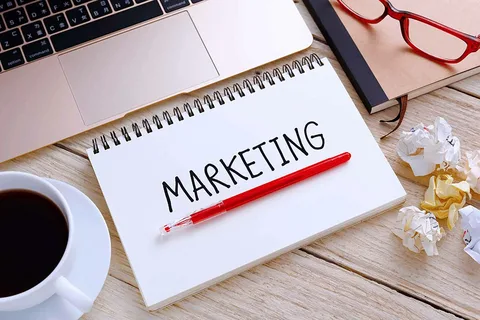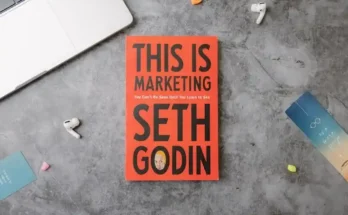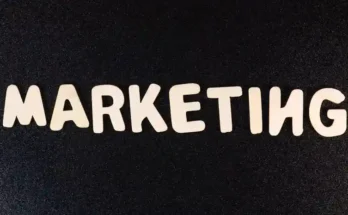When most people hear the word “marketing,” their minds jump to flashy ads, billboards, or social media promotions. But marketing is far more than that—it’s the heartbeat of every successful venture. Whether you’re a business owner, a job seeker, a freelancer, or even someone just trying to stand out in a crowd, marketing plays a crucial role in how you’re perceived and how your value is communicated.
Understanding marketing isn’t just for big companies anymore. It’s a necessary tool in the toolkit of every modern individual. In a world overflowing with options and information, knowing how to position yourself or your offering is not a luxury—it’s a necessity.
Why Marketing Matters to Everyone?
Marketing isn’t confined to boardrooms and brand launches. It’s deeply embedded in everyday life. Whether you realize it or not, you’re constantly marketing yourself in subtle (and sometimes not-so-subtle) ways.
-
Marketing for Job Seekers and Professionals
Imagine walking into a job interview. You dress appropriately, research the company, and present your achievements in a compelling way. That’s marketing. You are marketing your experience, skills, and personality to fit a potential role. Your resume? That’s your promotional brochure. Your LinkedIn profile? A digital billboard.
In today’s competitive job market, being qualified isn’t enough. You have to know how to sell yourself. How do you communicate your unique value? What makes you different from dozens of other applicants? The answer lies in personal branding—a key aspect of marketing.
-
Marketing for Entrepreneurs and Startups
Entrepreneurs live and breathe marketing, often without even realizing it. From the moment an idea is born, marketing begins. Why? Because turning an idea into a product, and then convincing people to pay for it, is a marketing journey.
Brand identity, storytelling, customer engagement, and content strategy are all crucial pieces of this puzzle. Entrepreneurs must understand their audience, create desire, and build trust—all pillars of effective marketing.
Without marketing, even the most innovative product can go unnoticed. With the right marketing, even a simple idea can become a household name.
-
Marketing for Small Businesses
For small business owners, marketing is the bridge that connects their passion to their customers. You may have the best bakery in town or offer top-tier home repair services, but if no one knows about it, business won’t flourish.
Local SEO, online reviews, word-of-mouth, and social media engagement are just a few tools that small businesses use to grow. Good marketing brings visibility, while great marketing creates loyalty and brand ambassadors.
The Universal Language of Selling:
Marketing is essentially the art of communication. It’s about telling the right story, to the right audience, at the right time.
-
Selling Products
Whether you’re selling sneakers or software, marketing helps identify who your customer is and what message will get them to take action. From packaging to placement, everything is influenced by marketing decisions. It’s not just about showcasing features—it’s about highlighting benefits and creating emotional connections.
Ever wonder why people are willing to pay hundreds for a pair of branded shoes? It’s not the leather or the design alone. It’s the story behind the brand, the identity they buy into. That’s marketing at work.
-
Selling Services and Skills
Freelancers, consultants, and creatives often struggle with visibility. You might be the best graphic designer in your city, but unless people know about you and understand your value, opportunities will pass you by.
Marketing allows service providers to craft portfolios, build reputations, and establish authority in their niche. Through content marketing, social proof (like reviews and testimonials), and networking, individuals can showcase their skills in a way that attracts clients or employers.
-
Selling Yourself
This might sound strange at first—but in many aspects of life, you’re the product. Whether you’re at a networking event, pitching a business, or going on a date, you’re marketing who you are.
This doesn’t mean being fake or manipulative. Authenticity is a huge asset in marketing. It means understanding what you bring to the table and learning to present it effectively. Confidence, storytelling, and self-awareness are key here.
The Psychology Behind Great Marketing:
Good marketing is deeply rooted in human psychology. It taps into emotions, desires, fears, and aspirations.
-
Emotional Triggers and Consumer Behavior
People don’t always buy based on logic—they buy based on feelings. Marketing that connects emotionally often outperforms campaigns that simply list features. Why? Because emotions drive decisions, and logic often follows to justify them.
Whether it’s the joy of buying a gift, the fear of missing out, or the desire to belong, emotional triggers are at the core of many marketing strategies.
-
Storytelling as a Tool
One of the most powerful tools in marketing is storytelling. Humans are wired to respond to stories—they captivate, inform, and inspire action. Brands with compelling narratives often enjoy stronger loyalty and trust.
The same goes for individuals. Think of your life as a story. Your resume, website, or social media profile should tell a coherent and captivating story about who you are and what you stand for.
Digital Age and Digital Marketing:
We’re living in the most connected time in history. The internet has not only expanded the reach of marketing but has also made it accessible to everyone.
-
Social Media
Platforms like Instagram, LinkedIn, and TikTok have given everyone a voice. You can build an audience, promote a product, or grow a personal brand—all from your smartphone. Algorithms have replaced ad agencies. And viral content has become more valuable than billboard space.
But this accessibility comes with a caveat—competition. That’s why having a clear marketing strategy is more important than ever. Random posts or ads won’t do the trick. Consistency, authenticity, and engagement are the new currencies.
-
Content is Still King
In the digital world, content is how you communicate. Blogs, videos, podcasts, newsletters—they all serve the same purpose: to provide value and build trust.
The most successful marketers are those who educate, entertain, or inspire their audience consistently. It’s not about selling all the time; it’s about becoming a resource, a go-to expert, or a trusted voice.
Conclusion:
Whether you’re running a business, climbing the corporate ladder, building a freelance career, or simply trying to stand out, marketing is the tool that will get you there. It’s not about being pushy or salesy—it’s about communication, connection, and value.
In today’s noisy world, being great isn’t enough. You have to be visible. You have to be memorable. And that’s where marketing steps in.
So the next time you think marketing isn’t your job—think again. Every email you send, every post you make, every conversation you have is a chance to market something valuable: your product, your passion, or yourself.




